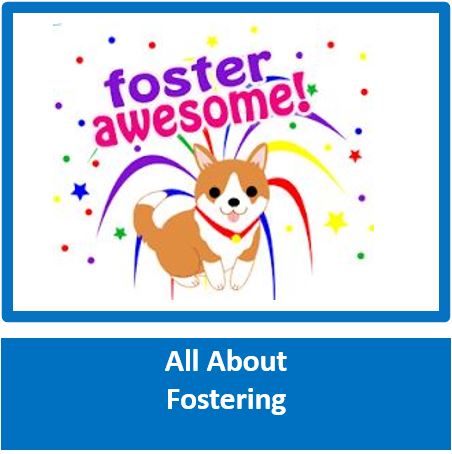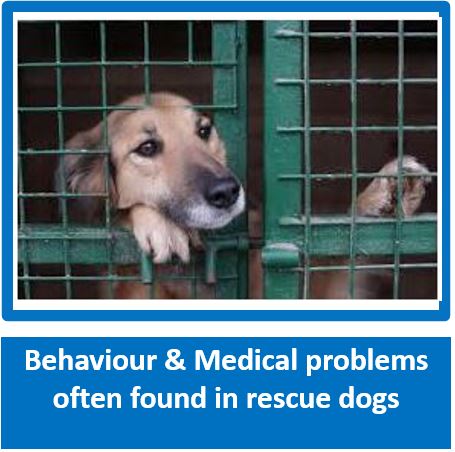
Please visit and LIKE / FOLLOW our Facebook Page and share with family, friends and on your own Facebook page, and ask them to share further – it is only by working together and sharing knowledge and education that we can improve the lives of dogs and assist owners. We do not inundate you with posts – an average of 5 per week, plus one Tip of the Week, and the odd informative post. Thank You!
Welcome to your new shelter dog! Some tips to help you along the way
By Scotty Valadao – Canine Behaviourist – www.friendsofthedog.co.za
By Scotty Valadao – Canine Behaviourist – www.friendsofthedog.co.za
There are so many beautiful dogs just wanting love and a place to call home, and to my mind at least, giving a home to a dog in a shelter situation is one of the most amazing things any human being can do, and to those of you that have done this, or are considering it, all I can say from the bottom of my heart is THANK YOU!
Honeymoon Period – the critical first 3 weeks
Unfortunately, not all adoptions are successful. When we bring in a new dog, over the first few weeks everything may seem to be going Honkey Dorey, but what we fail to realize is that this great behaviour could be due to something called the Honeymoon Period. This is often a period of relatively peaceful existence with the dog behaving well, or if any concerns, there are normally of low intensity. After the dog is feeling more settled, the more natural tendencies and behaviour tend to appear – a bit like your kids being well behaved and polite when they meet new people in new places – take them home, and they instantly revert to normal behaviour – so often when my boys were young and the above occurred, I wished people that congratulated me on such polite and well-behaved children could see them now! The quicker we attend to any unwanted behaviour, the greater the chance of success – these first 3 weeks really are a critical time in your relationship with your new dog, and if are consistent about what you do, and do not accept, the chances of success are much higher.
Your attitude and perceptions
Another thing that often happens, is that new owners ignore behaviours that should be attended too, simply because they feel sorry for the dog – ‘shame, he had such a hard life/suffered abuse, was so thin, is something I hear so often. Yes, dogs from shelters have often had a really bad start to life, BUT that is all changed now – you have taken them in and given them a loving home – the past is simply that – the PAST! Your new dog is really one of the lucky ones - a fresh start in a loving home! By holding onto what your new dog may have experienced, you are not allowing him the fresh start he should have, if you are feeling sorry for him and ignoring behaviours you would normally not allow.
When I was staying in the Cape and hosting Shelter Courses and working with staff at Fallen Angels Shelter, in addition to working with dogs in the shelter, Fallen Angels and I brought in a behaviour consult for owners taking pups and dogs home. This consisted of giving them the tools they needed to help to shape a well-behaved member of their family, as well as being there for them if any problems did arise. This really was a great success – dogs settled much quicker as the owner knew exactly what to do and why, and the adoption was a success.
Some Tips to Get You Started – Prevention is always better than cure
Once again, thank you for adopting a shelter dog and giving it a new chance in life!
Honeymoon Period – the critical first 3 weeks
Unfortunately, not all adoptions are successful. When we bring in a new dog, over the first few weeks everything may seem to be going Honkey Dorey, but what we fail to realize is that this great behaviour could be due to something called the Honeymoon Period. This is often a period of relatively peaceful existence with the dog behaving well, or if any concerns, there are normally of low intensity. After the dog is feeling more settled, the more natural tendencies and behaviour tend to appear – a bit like your kids being well behaved and polite when they meet new people in new places – take them home, and they instantly revert to normal behaviour – so often when my boys were young and the above occurred, I wished people that congratulated me on such polite and well-behaved children could see them now! The quicker we attend to any unwanted behaviour, the greater the chance of success – these first 3 weeks really are a critical time in your relationship with your new dog, and if are consistent about what you do, and do not accept, the chances of success are much higher.
Your attitude and perceptions
Another thing that often happens, is that new owners ignore behaviours that should be attended too, simply because they feel sorry for the dog – ‘shame, he had such a hard life/suffered abuse, was so thin, is something I hear so often. Yes, dogs from shelters have often had a really bad start to life, BUT that is all changed now – you have taken them in and given them a loving home – the past is simply that – the PAST! Your new dog is really one of the lucky ones - a fresh start in a loving home! By holding onto what your new dog may have experienced, you are not allowing him the fresh start he should have, if you are feeling sorry for him and ignoring behaviours you would normally not allow.
When I was staying in the Cape and hosting Shelter Courses and working with staff at Fallen Angels Shelter, in addition to working with dogs in the shelter, Fallen Angels and I brought in a behaviour consult for owners taking pups and dogs home. This consisted of giving them the tools they needed to help to shape a well-behaved member of their family, as well as being there for them if any problems did arise. This really was a great success – dogs settled much quicker as the owner knew exactly what to do and why, and the adoption was a success.
Some Tips to Get You Started – Prevention is always better than cure
- This is a new start for both of you, so no feelings of pity – your new dog is one of the really lucky ones!
- Most of us tend to bring a new dog into our lives over the weekend or holidays when we have some time to spend and settle it. Please don’t stay with the dog 24/7 and give loads of attention, as when you go back to your normal life after the weekend or holiday, the dog is likely to stress, and the possibility of separation anxiety occurring is a reality. Rather put in place your normal routine as possible.
- Don’t overwhelm your new dog – give him a few days to settle down. Avoid walks, rather walk him around the garden and let him get to know his surroundings. By the same token, restrict family and friends coming over for at least a week to welcome him – let .him get to know his new family. Bear in mind, that although this lucky dog has ended up in a loving home, every single thing is strange to him and there will be an element of stress. Get him into his new routines – dogs love routine and it helps them to feel secure.
- Put in place immediately what you do and don’t allow. Dogs thrive and respond to consistency, so don’t allow something one day, and the next day not allow it to happen. All you will do here is to totally confuse your dog and if there are any existing concerns, they are likely to intensify.
- There is a tendency with adopted dogs to be very needy and they will follow their owners around the home. Although we may feel great that the dog is bonding so well, this can become the beginning of separation anxiety – and believe you me, this is the last thing you want! Rather teach you dog that it is ok, and also really rewarding to spend time alone – just supply a delicious stuffed Busy Buddy or Kong in a separate area. You can gradually build up the time he is alone, without it being excessive.
- I doubt there is even one of us that is not thrilled when we arrive home to a wonderful welcome from our dogs, but this behaviour can become really excessive and is not always welcomed by owners – may be great when you arrive home in a pair of jeans, but not so great when you have on white trousers, or an elderly person visiting .
When you come in the door, just stop without talking too or interacting with the dog in any way – just stand in the immediate vicinity and ignore him. When he has calmed down, walk calmly to another room, or away from the door, or to another area, ask for a Sit, praise and give him a treat and give him all the love you want too. What we are doing here is using the natural behaviour that dogs themselves use, to show what is acceptable and what is no. - Once your new dog has settled down, start to teach him all the basic exercises you want to bring in.
- If your new dog has come into a home with an existing dog, the shelter would have ensured that the dogs were well matched by allowing them to meet and interact, so you should be off to a good start in this aspect.
What you do not do, is to give the new dog additional attention, or more attention than the existing dog. Until the dogs sort out the canine hierarchy between themselves, if you give the new dog, extra attention, you will be upsetting the ‘apple cart’ between the dogs, as the saying goes. Rather greet, treat, give attention too, and interact with the existing dog first and foremost. That way, you are immediately helping to keep the status quo in place. As you really are the person in charge and supply all the dogs needs, it is important that you can also decide who gets your attention, and who doesn’t, so perhaps every 2nd or 3rd time, give the new dog the attention, love etc first. This will go a long way towards keeping harmony. - Even though the new dog may be the perfect playmate for your existing dog, give them time apart, in different areas with a stuffed chew toy. Leaving them alone playing for too long can cause excitement levels to increase and the playing may get out of hand.
- During their alone time, do make sure you give your existing dog a lot of separate attention – his life has changed also, and the stress levels could be up.
- Feed the dogs totally separately. The existing dog will eat where it has always eaten, and the new dogs meal is placed in an entirely different location, even with a door between them. This allows both dogs to eat in peace and not worry about another dog eyeballing or threatening them. This also ensures you can see how much the dogs are eating, will prevent any resource guarding, and also over dependency on one another.
- If two dogs, until you are 100% sure there will be no resource guarding of toys and valuable items, give these to the dogs totally separately.
- If you do see problems developing, please get help as soon as possible, from a qualified canine behaviourist.
Once again, thank you for adopting a shelter dog and giving it a new chance in life!




